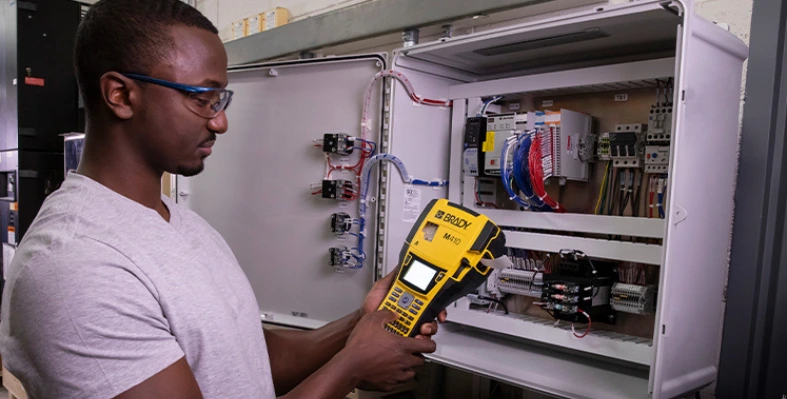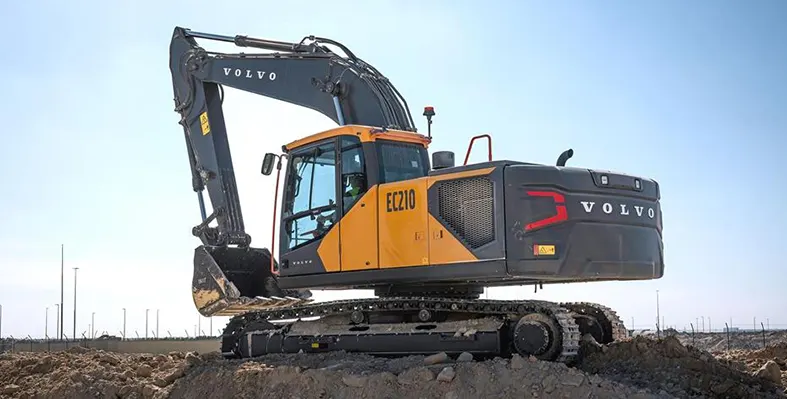In The Spotlight
MENA platform aims to enhance clean water accessibility
The watertech company Kumulus Water, which turns air into potable water, has raised US$3.5mn in seed money.
Bpifrance led the seed funding through France 2030 SGPI and the Île-de-France Region, with participation from other international regional and investors, including Plus VC, MENA's most active VC, Khalys Venture, Flat6Labs, Europe's leading bottled water group Spadel, and several family offices and founders from Europe and North Africa.
Iheb Triki and Mohamed Ali Abid founded Kumulus in 2021. The company creates and produces atmospheric water generators, which use air humidity to produce safe drinking water without having any pre-existing electrical or water infrastructure.
Across Europe, Africa, and the Middle East, the company's technologies are currently in use in hotels, schools, and remote settlements.
With this financing, Kumulus will debut the Kumulus Boks, a new range of industrial-grade, cutting-edge Atmospheric Water Generators (AWG) that supply pure drinking water straight from air humidity, as well as expand operations in Tunisia, France, and Spain, and prepare for market entry into Saudi Arabia.
Producing water locally
“We’re deeply grateful to our existing and new investors for their trust and continued support,” said Iheb Triki, CEO and co-founder of Kumulus Water. “Their involvement is a strong vote of confidence in our technology and our vision. At Kumulus, we believe access to clean drinking water should not depend on existing infrastructure. With this funding, we’re taking a major step toward making clean water accessible, sustainable, and decentralised—especially for the communities that need it most.”
“This funding allows us to scale not just production, but impact,” said Mohamed Ali Abid, co-founder and CTO of Kumulus Water. “We have spent the past few years refining a technology that can operate reliably in some of the harshest and most water-stressed environments. Now, we are ready to deploy it at scale and bring truly off-grid, sustainable water access to more communities across the region and beyond.”
Hasan Haider, founder and managing partner at +VC, said, “Kumulus is building a scalable, climate-resilient solution to one of the most critical regional and global challenges-access to clean drinking water. At +VC, we invest in founders who are not only mission-driven, solving real-world problems but also executing with commercially scalable solutions. Kumulus fits that profile and is well-positioned for both regional and global growth. We’re excited to support their journey as they scale meaningful impact, making them stand out in the climate-tech space.”
“We believe the world needs complementary solutions to address the growing challenge of drinking water scarcity,” added Clément Yvorra, global business development manager at Spadel. “What convinced us is Kumulus’ ability to produce water locally, without packaging or transportation, offering a truly sustainable alternative.”
Megger hosts webinar on smart grid sensors
On 3 June this year, Megger hosted an insightful webinar titled "Smart Grid Sensors: Flexible Solutions for Diverse Power Grids", drawing utility professionals and engineers eager to explore innovative grid management solutions.
The session, led by Johan Pryra, Senior Applications Engineer for Monitoring Solutions at Megger, delved into the critical role of adaptable, data-driven technologies in addressing the unique challenges of modern power distribution grids.
Pryra highlighted that while power grids may appear uniform globally, their designs and operational demands vary significantly across regions.
These differences create complex challenges for utilities, from aging infrastructure to integrating renewable energy sources.
Megger’s Smart Grid Sensors were presented as a versatile solution, offering flexibility and seamless integration without requiring extensive infrastructure overhauls.
Through real-world case studies, Pryra showcased how utilities across diverse geographies have successfully deployed these sensors to enhance grid reliability and efficiency.
The webinar emphasised practical applications, illustrating how the sensors provide actionable data to optimise grid performance.
For instance, Pryra shared examples of utilities leveraging real-time monitoring to detect faults, balance loads, and improve outage response times.
These deployments have resulted in measurable benefits, including reduced downtime and enhanced operational decision-making.
The session also explored how the sensors’ ease of integration supports varied customer use cases, making them a scalable solution for utilities of all sizes.
Attendees gained valuable insights into the technical and operational advantages of Megger’s solutions, with Pryra’s expertise grounding the discussion in practical, field-tested outcomes.
The webinar underscored Megger’s commitment to empowering utilities with innovative tools to navigate the complexities of modern grid management.
By fostering adaptability and data-driven strategies, Megger’s Smart Grid Sensors are helping utilities worldwide build more resilient and efficient power distribution systems, tailored to their unique needs.
Click here to view the full recording of the virtual panel session
Interview: Liferay GM on digitalisation in the manufacturing process
In a Q&A with Technical Review Middle East, Moussalam Dalati, General Manager MEA & France – Liferay, speaks on digitalisation in the manufacturing sector. Read on:
How do Digital Experience Platforms (DXPs) drive digital transformation in the manufacturing sector?
Manufacturing is a prime industry for implementing Digital Experience Platforms (DXPs), given its complex B2B environment characterised by international operations, dynamic market demands, and intense competition. The manufacturing value chain involves numerous stakeholders from raw material suppliers to distributors and retailers, creating ample opportunities for technology to streamline operations and enforce process consistency.
For manufacturing companies, DXPs integrate a wide range of technologies to deliver streamlined digital interactions across the organisation. By unifying data from IoT sensors, ERP systems, and other enterprise platforms, DXPs enable seamless data access and analysis. This integration supports improved decision-making, cost optimisation, and greater operational efficiency throughout the manufacturing lifecycle.
What DXP solutions are most popular in manufacturing, and what drives their adoption?
In manufacturing, one of the most critical needs is robust B2B digital commerce that integrates seamlessly with broader self-service capabilities to deliver a unified digital customer experience. Liferay addresses this by combining native B2B commerce with powerful DXP features, enabling manufacturers to manage product catalogues, tutorials, knowledge bases, community forums, support tickets, and workflows on a single platform. Liferay DXP is especially well-suited for manufacturing scenarios, offering advanced features like Shop by Diagram (i.e., an interactive parts-diagram interface where technicians can click on components to order replacements), buyer approval workflows, contract pricing, and tiered discounts, all essential for complex B2B transactions. Manufacturers also face recurring challenges in reducing cost-to-serve, entering new markets, streamlining operations, and differentiating through customer experience.
How do DXPs support real-time analytics for predictive maintenance, quality control, and supply chain visibility?
DXPs consolidate structured and unstructured data from IoT devices, ERP systems, and production platforms into a single view. This single view provides clean, accessible data essential for powering AI-driven analytics. They also continuously collect sensor data. This enable early detection of equipment issues and support machine learning models that predict failures, reducing downtime and maximising asset performance.
Besides, real-time monitoring helps detect production deviations, while historical data analysis identifies patterns that may lead to defects. This proactive approach improves product quality and minimises waste. With easy-to-integrate AI capabilities, DXPs support predictive models for everything from energy efficiency to production optimisation, driving continuous improvement and competitive advantage.
How can DXPs integrate with existing ERP and manufacturing systems without disrupting operations?
As organisations scale, their existing investments in content, marketing, and customer management systems can become fragmented, resulting in siloed data and disjointed customer experiences. The high cost and complexity of replacing legacy systems often delay digital transformation initiatives that are critical to delivering seamless, connected experiences. Digital Experience Platforms (DXPs) like Liferay offer a strategic solution. Rather than replacing existing systems, Liferay DXP integrates and extends them, enabling companies to unify the customer journey across touchpoints.
With out-of-the-box capabilities for content management, personalisation, and customer engagement, DXPs provide a modern, cohesive experience layer while preserving legacy infrastructure in the background.
These platforms are built for flexibility, supporting both current business needs and future innovation. As a result, more companies each year are turning to DXPs to simplify the experience, modernize systems and break down silos to accelerate digital transformation at scale.
Abu Dhabi, UAE
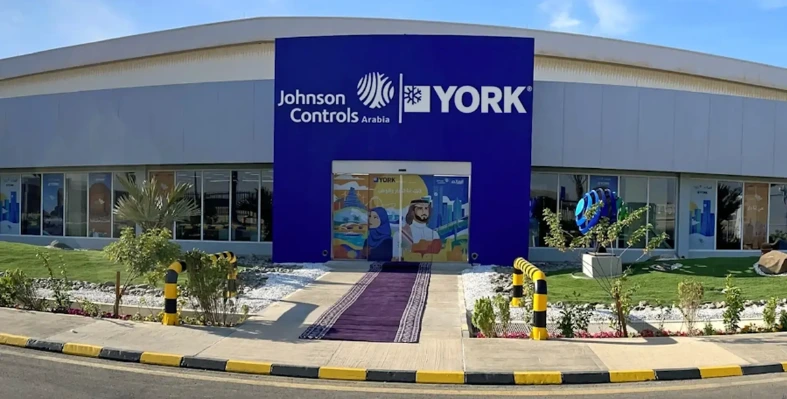
Johnson Controls Arabia will deliver a state-of-the-art cooling solution powered by YORK. (Image source: JCA)
Johnson Controls Arabia to supply cooling system for Saudi EV facility
Johnson Controls Arabia has entered into a strategic partnership with Modern Building Leaders (MBL) to provide and operate a fully integrated YORK cooling system for the new CEER manufacturing facility in King Abdullah Economic City.
Johnson Controls Arabia is a global leader in HVAC systems, smart building controls, and energy efficiency.
The company said that its collaboration with CEER represents a significant advancement in Saudi Arabia’s industrial technology landscape and supports the Kingdom’s “trailblazing end-to-end electric vehicle brand.”
Under the agreement, Johnson Controls Arabia will deliver a state-of-the-art cooling solution powered by YORK technologies, featuring 12 chillers and various cooling units with a combined capacity of 33,000 TR.
The CEER facility, a cornerstone of Saudi Arabia’s electric vehicle industry, is designed to produce world-class electric cars, prioritising sustainability, efficiency, and cutting-edge technology.
The partnership aligns with the launch of the region’s first YORK air-cooled chiller production line, boasting a 600-ton capacity, at the YORK manufacturing complex in King Abdullah Economic City.
This milestone was accompanied by the opening of Saudi Arabia’s first AHRI-certified performance testing laboratory for air-cooled chillers of this capacity, cementing the Kingdom’s position as a regional hub for innovation in the HVAC and cooling sector.
The inauguration ceremony was attended by senior executives, including Tareq Telmesani, CEO of MBL, and Mohamed Fathy El-Bordany, Plant Facility and Maintenance Director at CEER.
This agreement underscores Johnson Controls Arabia’s commitment to supporting major manufacturing initiatives in Saudi Arabia, enhancing its role as a trusted partner in delivering high-efficiency, sustainable cooling solutions that meet global standards and bolstering the Kingdom’s industrial infrastructure.
Commenting on the milestone, Dr. Mohanad AlShaikh, CEO of Johnson Controls Arabia, stated, “We are proud to play a role in this ambitious national project that reflects our commitment to delivering smart, sustainable solutions aligned with Saudi Vision 2030. Our success in this initiative demonstrates the trust our partners place in YORK’s technical strength and reliability, and our ability to provide integrated solutions that rival the world’s leading providers, driven by expert engineering teams, fast execution, and excellent after-sales support.”
MENA platform aims to enhance clean water accessibility
The watertech company Kumulus Water, which turns air into potable water, has raised US$3.5mn in seed money.
Bpifrance led the seed funding through France 2030 SGPI and the Île-de-France Region, with participation from other international regional and investors, including Plus VC, MENA's most active VC, Khalys Venture, Flat6Labs, Europe's leading bottled water group Spadel, and several family offices and founders from Europe and North Africa.
Iheb Triki and Mohamed Ali Abid founded Kumulus in 2021. The company creates and produces atmospheric water generators, which use air humidity to produce safe drinking water without having any pre-existing electrical or water infrastructure.
Across Europe, Africa, and the Middle East, the company's technologies are currently in use in hotels, schools, and remote settlements.
With this financing, Kumulus will debut the Kumulus Boks, a new range of industrial-grade, cutting-edge Atmospheric Water Generators (AWG) that supply pure drinking water straight from air humidity, as well as expand operations in Tunisia, France, and Spain, and prepare for market entry into Saudi Arabia.
Producing water locally
“We’re deeply grateful to our existing and new investors for their trust and continued support,” said Iheb Triki, CEO and co-founder of Kumulus Water. “Their involvement is a strong vote of confidence in our technology and our vision. At Kumulus, we believe access to clean drinking water should not depend on existing infrastructure. With this funding, we’re taking a major step toward making clean water accessible, sustainable, and decentralised—especially for the communities that need it most.”
“This funding allows us to scale not just production, but impact,” said Mohamed Ali Abid, co-founder and CTO of Kumulus Water. “We have spent the past few years refining a technology that can operate reliably in some of the harshest and most water-stressed environments. Now, we are ready to deploy it at scale and bring truly off-grid, sustainable water access to more communities across the region and beyond.”
Hasan Haider, founder and managing partner at +VC, said, “Kumulus is building a scalable, climate-resilient solution to one of the most critical regional and global challenges-access to clean drinking water. At +VC, we invest in founders who are not only mission-driven, solving real-world problems but also executing with commercially scalable solutions. Kumulus fits that profile and is well-positioned for both regional and global growth. We’re excited to support their journey as they scale meaningful impact, making them stand out in the climate-tech space.”
“We believe the world needs complementary solutions to address the growing challenge of drinking water scarcity,” added Clément Yvorra, global business development manager at Spadel. “What convinced us is Kumulus’ ability to produce water locally, without packaging or transportation, offering a truly sustainable alternative.”
ICC to showcase global building safety standards in Egypt
The International Code Council (ICC), a global authority on building safety and construction standards, will take part in the 7th edition of Big 5 Construct Egypt, held from 17-19 June 2025 at the Egypt International Exhibition Center.
Mohammed Amer, managing director – ICC MENA, will present a session titled “Highlighting the Impact of ICC on Innovative Building Practices in the MENA.”
His address will explore ICC’s expanding role in the region, with a focus on its International Codes (I-Codes) and the wider ICC Family of Solutions.
Using real-world case studies, Amer will demonstrate how ICC works with governments, developers, and industry experts to promote international best practices throughout the MENA construction ecosystem.
In Egypt, ICC plays a vital role in advocating for modern regulatory frameworks, encouraging safer, more sustainable infrastructure. Through strategic partnerships and capacity-building initiatives, the organisation continues to support the country’s construction growth, while aligning it with global standards.
Bringing together more than 350 exhibitors from over 20 countries, Big 5 Construct Egypt showcases cutting-edge innovations driving regional construction forward.
Held under the patronage of H.E. Dr. Mostafa Madbouly, Prime Minister of Egypt, and supported by the Egyptian Armed Forces Engineering Authority, the event serves as a key platform for shaping the built environment in North Africa.
Speaking about ICC’s participation, Amer stated, “At ICC, our mission is to support governments and industry stakeholders in implementing internationally recognised codes and standards that enhance safety, resilience, and sustainability. In Egypt and across the GCC, our efforts have played a key role in advancing building regulatory modernisation, integrating smart technologies, and strengthening the professional capacity needed to apply best practices effectively.”
Power Metallic gets licensed to explore Saudi mineral belt
Power Metallic Mines Inc., a prominent exploration and development company, has been granted the exploration licence for the Jabal Baudan project in Saudi Arabia’s Jabal Sayid Mineralised Belt.
Power Metallic is now one of the few foreign companies to secure mining concessions in the Kingdom, following a successful bid in a competitive licensing process.
CEO Terry Lynch, said, "We are honoured to have been awarded the Jabal Baudan exploration license, marking a pivotal step in our strategy to expand our portfolio into one of the world's most promising mineral belts. This achievement underscores our commitment to advancing mineral exploration globally and highlights our ability to secure high-value assets in competitive jurisdictions."
Strategic location in a mineral-rich region
The Jabal Baudan property, spanning over 200 sq km, is the largest of seven exploration packages offered in the Jabal Sayid belt.
Located approximately 150 km south of Jeddah along the western Red Sea coastal plain, the site is highly prospective for copper, gold, and zinc mineralisation.
The region is renowned for its volcanic massive sulphide (VMS) deposits, including the world-class Jabal Sayid Mine and the promising Umm ad Damar deposit.
Situated in rugged mountainous terrain intersected by wadi systems draining to the Red Sea, Jabal Baudan is underlain by late Proterozoic volcanic, volcaniclastic, and sedimentary rocks, intruded by younger plutonic rocks ranging from gabbro to granite.
This geological setting mirrors that of the nearby Umm Hiljan deposit, indicating strong potential for VMS-style mineralisation.
Historical exploration by BRGM, Riofinex, and USGS between 1966 and 1985 identified siliceous volcanic rocks and “ironstone,” suggesting mineralising systems conducive to VMS deposits.
Exploration strategy and support
Power Metallic plans to utilise historical aeromagnetic survey data to refine its exploration approach and pinpoint priority target areas.
The project is supported by Saudi Arabia’s Exploration Enablement Program (EEP), a US$182mn initiative designed to stimulate and de-risk mineral exploration investments.
The EEP offers up to US$2mn per exploration licence, with a cap of 15 licences per company, fostering knowledge exchange and growth.
This support will enable Power Metallic to enhance its geological understanding of Jabal Baudan and prioritise high-potential zones for advanced exploration.
"The Jabal Baudan site is located at the heart of the most prospective region of Saudi Arabia. It is easily reachable by world quality infrastructure and initial samples have confirmed strong potential for a large range of minerals" Dr Remi Piet, senior partner at Embellie Advisory.
Interview: Liferay GM on digitalisation in the manufacturing process
In a Q&A with Technical Review Middle East, Moussalam Dalati, General Manager MEA & France – Liferay, speaks on digitalisation in the manufacturing sector. Read on:
How do Digital Experience Platforms (DXPs) drive digital transformation in the manufacturing sector?
Manufacturing is a prime industry for implementing Digital Experience Platforms (DXPs), given its complex B2B environment characterised by international operations, dynamic market demands, and intense competition. The manufacturing value chain involves numerous stakeholders from raw material suppliers to distributors and retailers, creating ample opportunities for technology to streamline operations and enforce process consistency.
For manufacturing companies, DXPs integrate a wide range of technologies to deliver streamlined digital interactions across the organisation. By unifying data from IoT sensors, ERP systems, and other enterprise platforms, DXPs enable seamless data access and analysis. This integration supports improved decision-making, cost optimisation, and greater operational efficiency throughout the manufacturing lifecycle.
What DXP solutions are most popular in manufacturing, and what drives their adoption?
In manufacturing, one of the most critical needs is robust B2B digital commerce that integrates seamlessly with broader self-service capabilities to deliver a unified digital customer experience. Liferay addresses this by combining native B2B commerce with powerful DXP features, enabling manufacturers to manage product catalogues, tutorials, knowledge bases, community forums, support tickets, and workflows on a single platform. Liferay DXP is especially well-suited for manufacturing scenarios, offering advanced features like Shop by Diagram (i.e., an interactive parts-diagram interface where technicians can click on components to order replacements), buyer approval workflows, contract pricing, and tiered discounts, all essential for complex B2B transactions. Manufacturers also face recurring challenges in reducing cost-to-serve, entering new markets, streamlining operations, and differentiating through customer experience.
How do DXPs support real-time analytics for predictive maintenance, quality control, and supply chain visibility?
DXPs consolidate structured and unstructured data from IoT devices, ERP systems, and production platforms into a single view. This single view provides clean, accessible data essential for powering AI-driven analytics. They also continuously collect sensor data. This enable early detection of equipment issues and support machine learning models that predict failures, reducing downtime and maximising asset performance.
Besides, real-time monitoring helps detect production deviations, while historical data analysis identifies patterns that may lead to defects. This proactive approach improves product quality and minimises waste. With easy-to-integrate AI capabilities, DXPs support predictive models for everything from energy efficiency to production optimisation, driving continuous improvement and competitive advantage.
How can DXPs integrate with existing ERP and manufacturing systems without disrupting operations?
As organisations scale, their existing investments in content, marketing, and customer management systems can become fragmented, resulting in siloed data and disjointed customer experiences. The high cost and complexity of replacing legacy systems often delay digital transformation initiatives that are critical to delivering seamless, connected experiences. Digital Experience Platforms (DXPs) like Liferay offer a strategic solution. Rather than replacing existing systems, Liferay DXP integrates and extends them, enabling companies to unify the customer journey across touchpoints.
With out-of-the-box capabilities for content management, personalisation, and customer engagement, DXPs provide a modern, cohesive experience layer while preserving legacy infrastructure in the background.
These platforms are built for flexibility, supporting both current business needs and future innovation. As a result, more companies each year are turning to DXPs to simplify the experience, modernize systems and break down silos to accelerate digital transformation at scale.
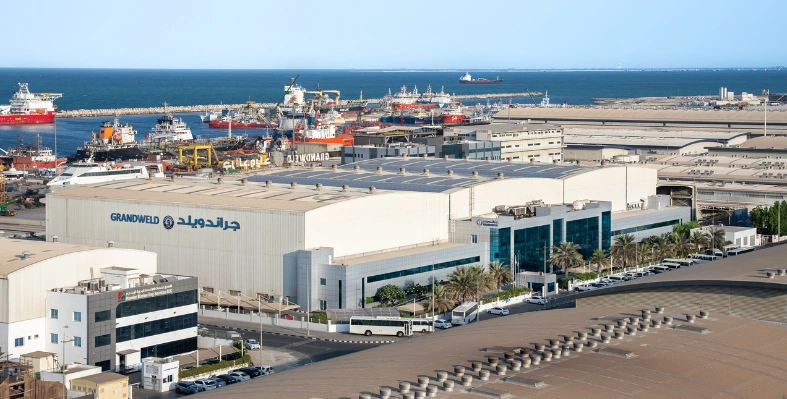
Grandweld recently decided to generate a major portion of its energy through solar power. (Image source: Grandweld Shipyards)
Designing vessels that support regional trade
Jamal S. Abki, general manager of Grandweld Shipyards, speaks to Technical Review Middle East on the company's latest updates. Read on:
Grandweld recently decided to generate a major portion of its energy through solar power. What drove this shift?
We believe that sustainability should not be treated as just a passing trend but a long-term strategic priority. Our decision to shift to solar power was driven by a deep commitment to align with the UAE’s forward-thinking environmental vision, particularly the Dubai Clean Energy 2050 and Dubai Net Zero Emissions Strategy 2050. Today, we generate 50% of our total energy needs through our solar power project, which has a current production capacity of 569 kWp, supporting both our ship building operations and our offices.
By becoming the first shipbuilder in the region to adopt solar power at this scale, we aim not only to reduce our carbon footprint but also to demonstrate that sustainable shipbuilding is both achievable and scalable. Our goal is to become a 100% green shipyard by the end of this year, with Phase Two of the project expected to conclude soon and set to increase total capacity to 1.3 MW.
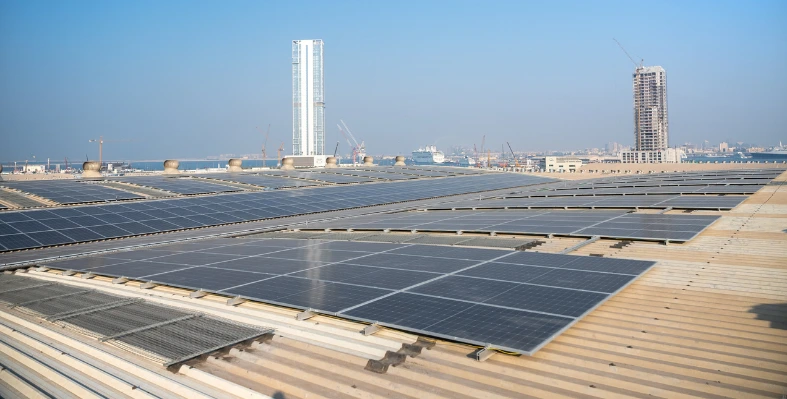
The Grandweld shipyard's solar rooftop
What are some of the most transformative technologies currently being adopted at Grandweld?
The integration of advanced technologies has significantly enhanced the efficiency and precision of our operations. Having an in-house facility allows us to maintain full control over quality and timelines.
We have adopted high-precision tools like Computer Numerical Control (CNC) technology into our shipbuilding and repair processes, including a state-of-the-art 4-axis CNC lathe machines, which enables us to produce complex, high-precision components tailored to client specifications, whether for small-batch production or high-volume orders.
Additionally, the use of Optical Emission Spectrometers (OES) technology enhances quality control and operational efficiency, especially in raw material or sample identification.
We further offer specialised 4-stroke engine services and refurbish marine alternators through precise rewinding techniques that extend their operational life. Moreover, our vessels, such as the recently delivered FNSA 7, are equipped with real-time remote monitoring systems and full digitalisation packages. These technologies support predictive maintenance and continuous performance tracking, helping reduce downtime and improve overall vessel reliability.
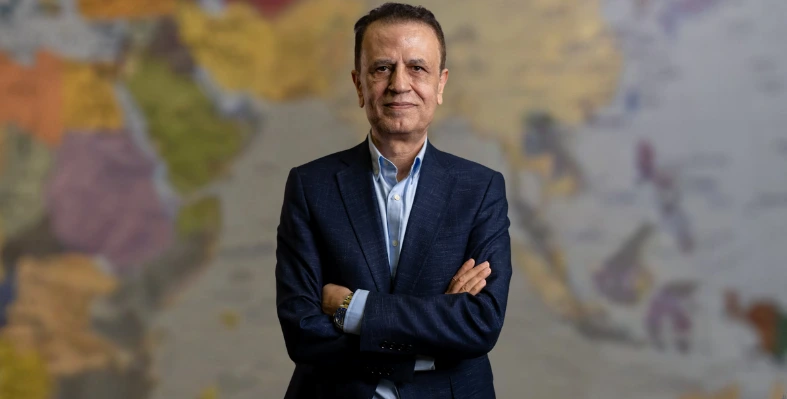
Jamal Abki, general manager of Grandweld Shipyards
Can you tell us more about your foray into military vessel construction and how you see this segment evolving in terms of scalability and innovation?
With the Middle East military vehicles market estimated at US$34.25bn in 2025 and expected to reach US$46.49bn by 2030, at a CAGR of 6.3%, our transition into the defence sector has been both timely and impactful. We have secured US$65.8mn across 15 shipbuilding projects within the GCC and successfully delivered 12 vessels, underscoring our position as a trusted partner for both commercial and defence clients.
Our initial military supplies, including a 45m Fast Attack Craft and a 17m Interceptor Vessel, met stringent defence standards and showcased our technical expertise, highlighted by the Interceptor’s surface drive propulsion system and the Fast Attack Craft’s precision performance.
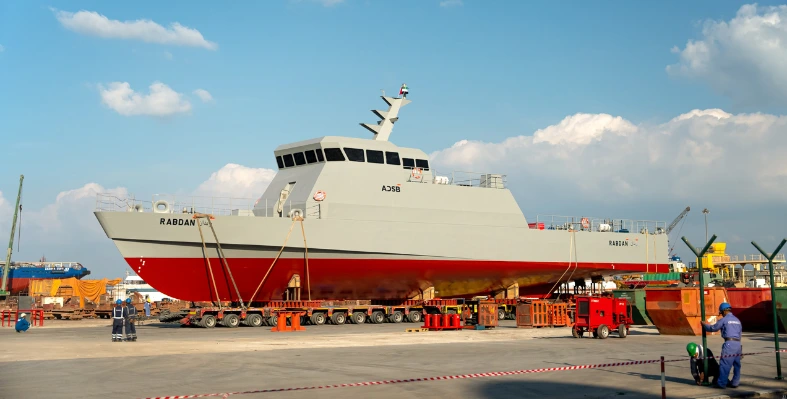
A military vessel built by Grandweld
Building on this momentum, we made a strong statement at NAVDEX 2025 with the unveiling of two advanced naval security platforms. One was the FA-400 Offshore Patrol Vessel, co-developed with ADSB and EDGE for ISR, zone surveillance, and rapid-strike operations. The other one was a 21-meter high-speed, lightweight Patrol Vessel designed for coastal defence.
Defence clients are now increasingly demanding modular vessel designs that allow multi-mission reconfiguration, integrated sensor suites, and hybrid propulsion systems. Our future roadmap includes expanding our defence portfolio with vessels offering enhanced automation and mission flexibility, ensuring Grandweld remains at the forefront of naval innovation amidst an evolving geopolitical landscape.
How is Grandweld contributing to designing vessels that support regional trade and sustainability goals?
From aluminium-hull crew boats that offer low-emission, high-speed personnel transfers to offshore patrol vessels designed for secure navigation in high-traffic zones, every vessel is purpose-built to optimise performance and minimise environmental impact.
To further align with the UAE’s green economy vision, we are also investing in next-generation shipbuilding technologies that promote sustainability and efficiency. Our focus includes integrating energy-efficient propulsion systems, advanced automation, and modular designs that not only reduce waste but also increase vessel versatility. These innovations support both economic resilience and environmental stewardship, enabling our clients to meet rigorous operational demands while advancing sustainability goals.





